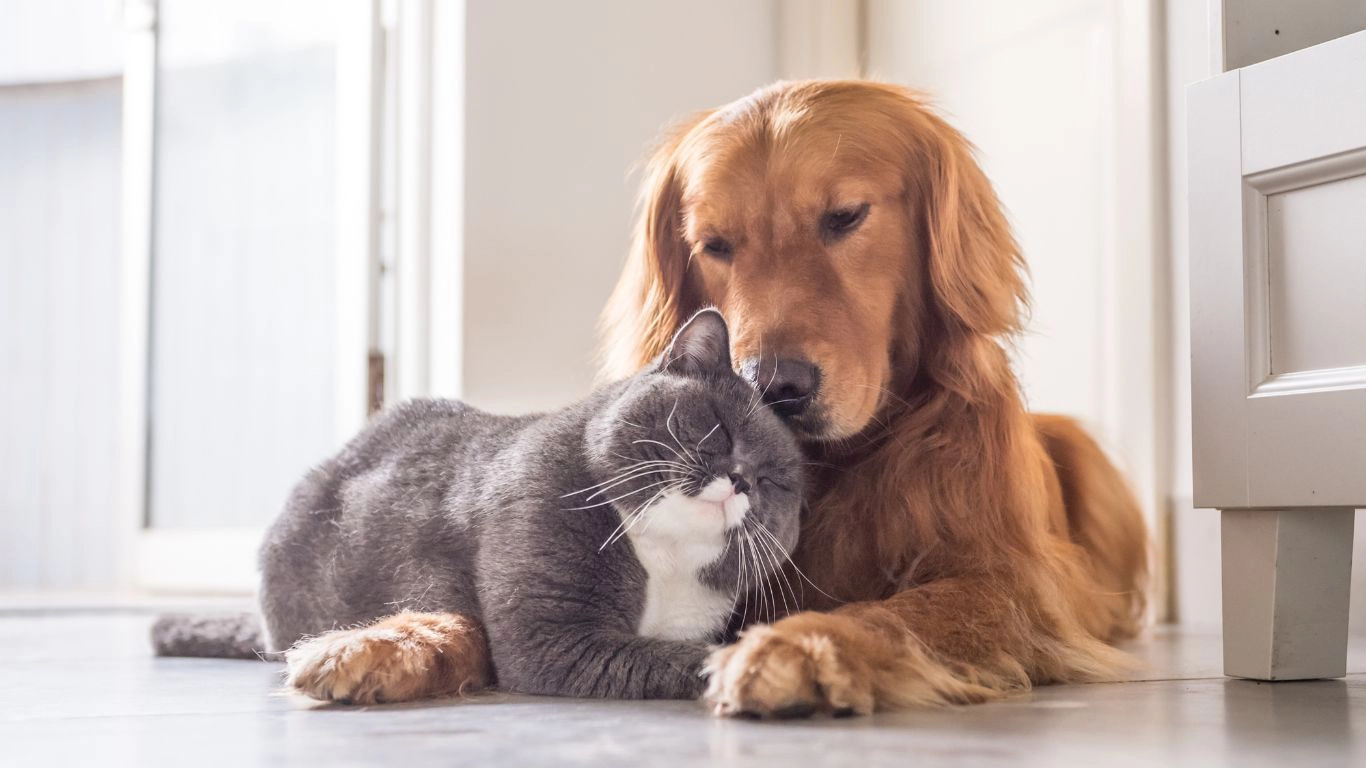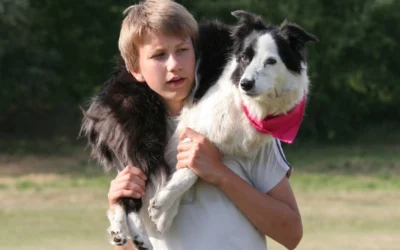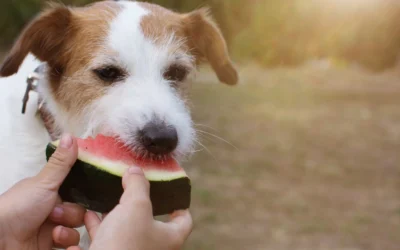First let’s identify what constitutes “older,” or in veterinary terms, “geriatric.” for our pets. The American Veterinary Medical Association classifies cats and small dogs as geriatric at 7 years of age. Because larger breed dogs tend to have shorter life spans, they consider them geriatric at 6 years of age.
As pet owners, most of us have seen dog and cat years compared to human years. Here’s an infographic from the AVMA showing approximate dog and cat years with human years.
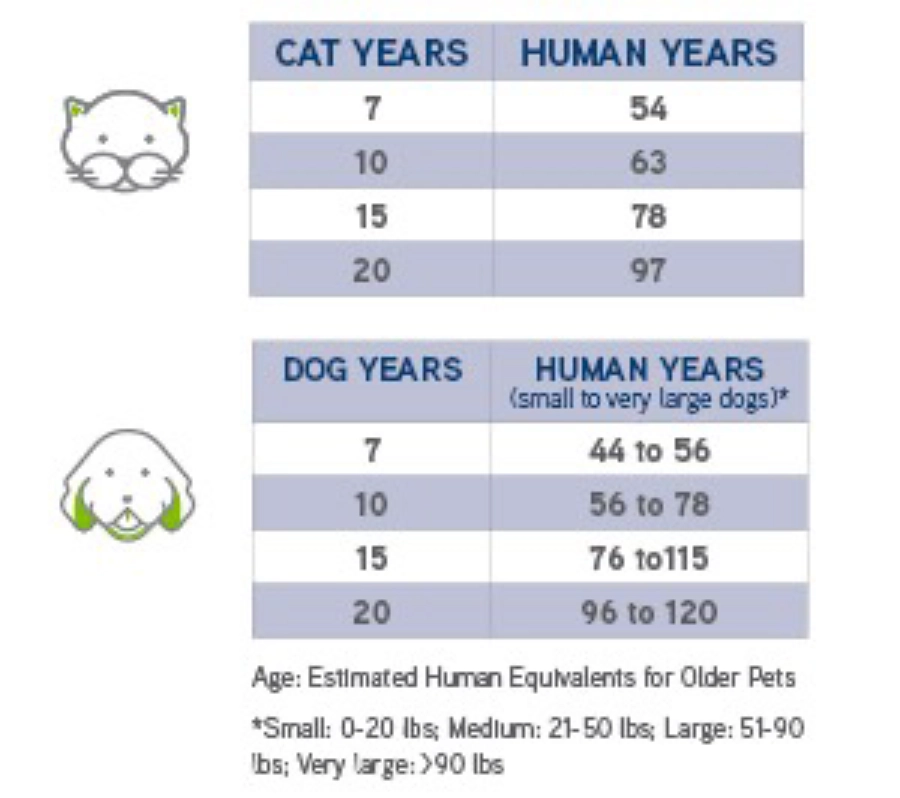
Health problems affecting older pets
Many of the health issues that older pets display are the same as those occurring in older humans. Diseases such as cancer, heart disease, diabetes, arthritis, etc.
The best way to deal with a suspected health issue is to first take your pet to a veterinarian for an examination and a Geriatric Health Panel, a combination of diagnostic tests especially developed to assess the health of older cats and dogs. These can include combinations of various tests such as blood, urinalyses, fecal exams, x-rays, and an electrocardiogram.
Talk to your veterinarian about the appropriate test, exam and services that he or she recommends for your pet
Feeding your older pet
DOGS:
Older pet dogs whose lifestyle is less active need a good high-quality food that is well balanced, yet lower in calories. Unless they are on a specific veterinary recommended diet due to health issues, the senior diet needs to contain adequate protein and fat.
If you dog doesn’t require a special needs diet, you may continue to feed their regular food, in reduced amounts. The majority of high-quality pet food manufacturers offer Senior diets, so you may investigate those as well.
CATS:
Although many older cats are put on a lower-protein diet there really isn’t any research to prove that the nutritional needs of healthy senior cats are any different from those of younger adult cats, says Kathryn Michel, DVM, associate professor of nutrition at the University of Pennsylvania School of Veterinary Medicine.
“I don’t doubt that there are some things that may be necessary or different for older animals, but our knowledge of that is limited at this point in time,”
Joseph Wakshlag, DVM, PhD, assistant professor of clinical nutrition at Cornell University College of Veterinary Medicine says “there is no perfect food, because every older cat has its set of problems,” Feeding a senior cat requires tailoring the diet with the help of your veterinarian to address any specific health problems your pet may have.
Quality of life suggestions
DOGS:
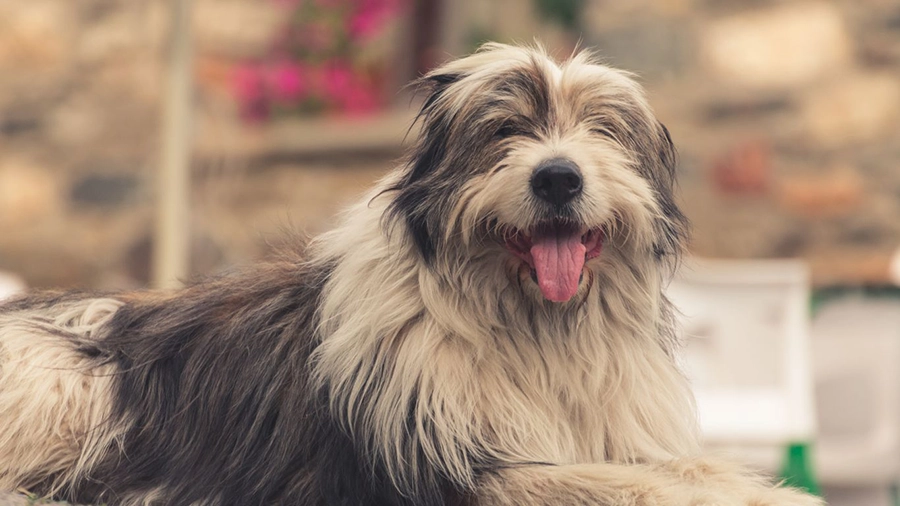
- Add joint supplements as part of your dog’s daily rations
- For larger dogs, add a ramp to make it easy for your pet to enter your auto or truck.
- Add a set of stairs to help your dog reach its favorite spot on your sofa or bed.
- Low impact daily activity is essential for both senior dogs and humans. If your pet likes to run and you’re able, go for it. Just make sure that you’re going at your dog’s pace; continually look for signs of distress such as panting or a slowed pace. Walking is good for us all, and it’s the most popular form of exercise for dog owners.
We liked the suggestions found on Slim Doggy. Check them out.
CATS:
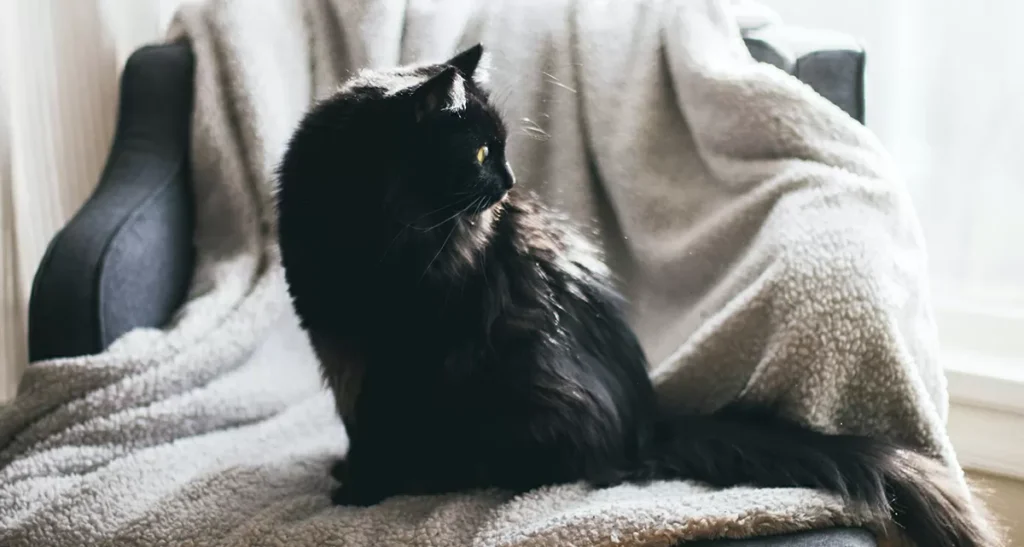
Unless you just adopted a senior cat, you know what toys and games your cat likes to play. Does your cat enjoy catnip? It’s a great way to encourage play. Rub it on his favorite toy or even place it inside a toy.
If your senior cat is affected by arthritis, it may no longer want to play on its cat tree or climb onto the windowsill. This is where your veterinarian plays an important part in helping your cat enjoy a better life. If your cat is no longer playing, climbing, jumping or running, check with your veterinarian, he or she likely has a remedy to put the bounce back into your cat’s life.
Until next time…
WOOF!

